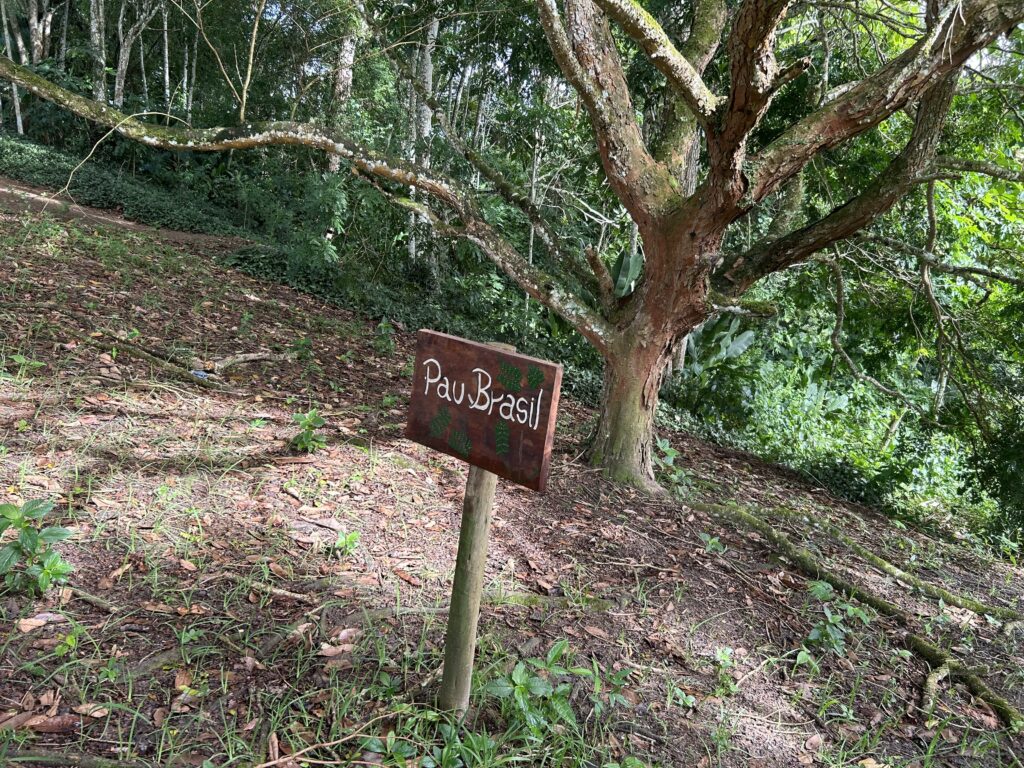CCSU in Brazil
A 2024 study conducted by a group of scientists and faculty from the University of São Paulo showed that 82% of 2,500 endemic tree species of the Atlantic Forest are at risk of extinction, and 13 are already presumed extinct.
According to the study, there are a total of 4,950 different tree species in the Atlantic Forest, and 65% of the Atlantic Forest’s tree species are at risk of extinction.
City expansions, infrastructure development and agricultural advancements in Brazil are usually to blame for the majority of the forest being destroyed.
Scott Wallace, an environmental journalist and a professor at the University of Connecticut, said that loggers and agricultural farmers’ encroachment contributes most to the endangerment of tree species.
Célio de Sousa, a co-founder of the Floresta Viva Institute in Bahia, Brazil, said that people use the rich wood of the Atlantic Forest to showcase their wealth status, which is playing a role in the destruction of the Atlantic Forest.
“The Atlantic Forest has this high-status wood and people use it to show that they have money,” de Sousa said.
According to SOS Mata Atlantica, an environmental conservation non-profit, 72% of the Brazilian population, or 155 million people, live in the Atlantic Forest and only 10% of the original forest remains.
Brazilwood, which is used for bows and gives Brazil its name, yerba mate, which is used for making tea, and Parana pine, which is used for furniture and flooring, are among the endangered species of trees, according to the 2024 study.

Wallace said that the specific Brazilian species going extinct would be detrimental to the Brazilian ecosystem and create a horrible domino effect in the environment.
“Keystone species are exactly what the word implies,” he said. “Those endangered species are hugely important and other species depend on them for shade, water, protection, microhabitats and more.”
The forest helps Brazil fight against climate change and overall provides clean air, food and medicine. Without forests’ and trees’ ability to store carbon, the world’s climate would be drastically impacted.
Renato de Lima of the University of São Paulo conducted a study so that all of the trees will end up on the International Union for Conservation of Nature’s Red List of Threatened Species.
“The number came as a shock,” de Lima told Phys.org. “Not all species can survive in degraded fragments so the actual situation may be even more alarming.”
In January, when the study was released, only 45% of the species were on the Red List. The process of including species on the list is a long and tedious process.
But, if the trees get on the list, de Lima said it will greatly affect the future conservation strategies for the trees.
Efforts to combat deforestation, climate change and tree extinction are slowly increasing as the multi-billion dollar tech company Apple has decided to invest $80 million into reforesting the Atlantic Forest.
According to The Brazilian Report, Apple plans to focus on reforesting Trancoso, a small municipality of Bahia, by replanting over 1 million trees on over 1,000 hectares of Atlantic Forest land by the end of 2024.
The Atlantic Forest is part of the Restore Fund, created by Apple, Conversation International and Goldman Sachs to solve nature-related issues and address worldwide climate change head-on.
SOS Mata Atlantica reported in May that deforestation was down in mature parts of the forest but was increasing in isolated areas.
Its executive director, Luís Fernando Guedes Pinto, said that the reason for the fluctuating results was that the Atlantic Forest Law was not being enforced in enclaves and less mature areas in the forest since agricultural and financial opportunities are deemed more important than acts of social reform.
Wallace said that Brazilian law enforcement officials putting their foot down is the most effective way to protect the forests and improve tree growth.
“Brazil has some forward-looking and progressive laws when it comes to protecting biodiversity,” Wallace said. “The biggest problem is dedicating the resources to put those laws into place.”
De Sousa said that informing people about what’s going on in the Atlantic Forest using social media and educational opportunities can invite people from unique like the United States and Canada to help.
“If the information gets to them, we could work with it,” de Sousa said. “We can all contribute with the interviews, with social media, and the videos you’re making are all very important.”
